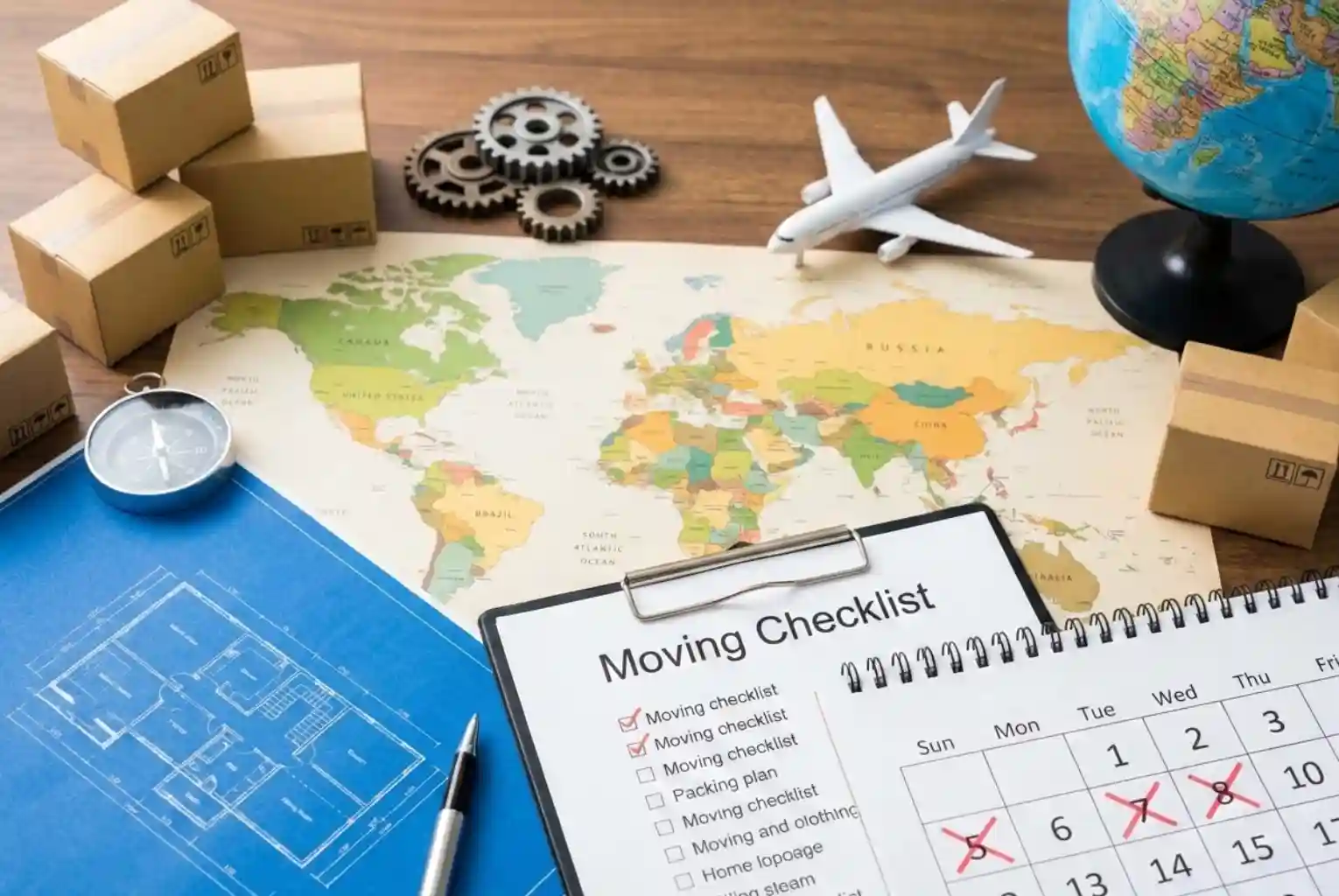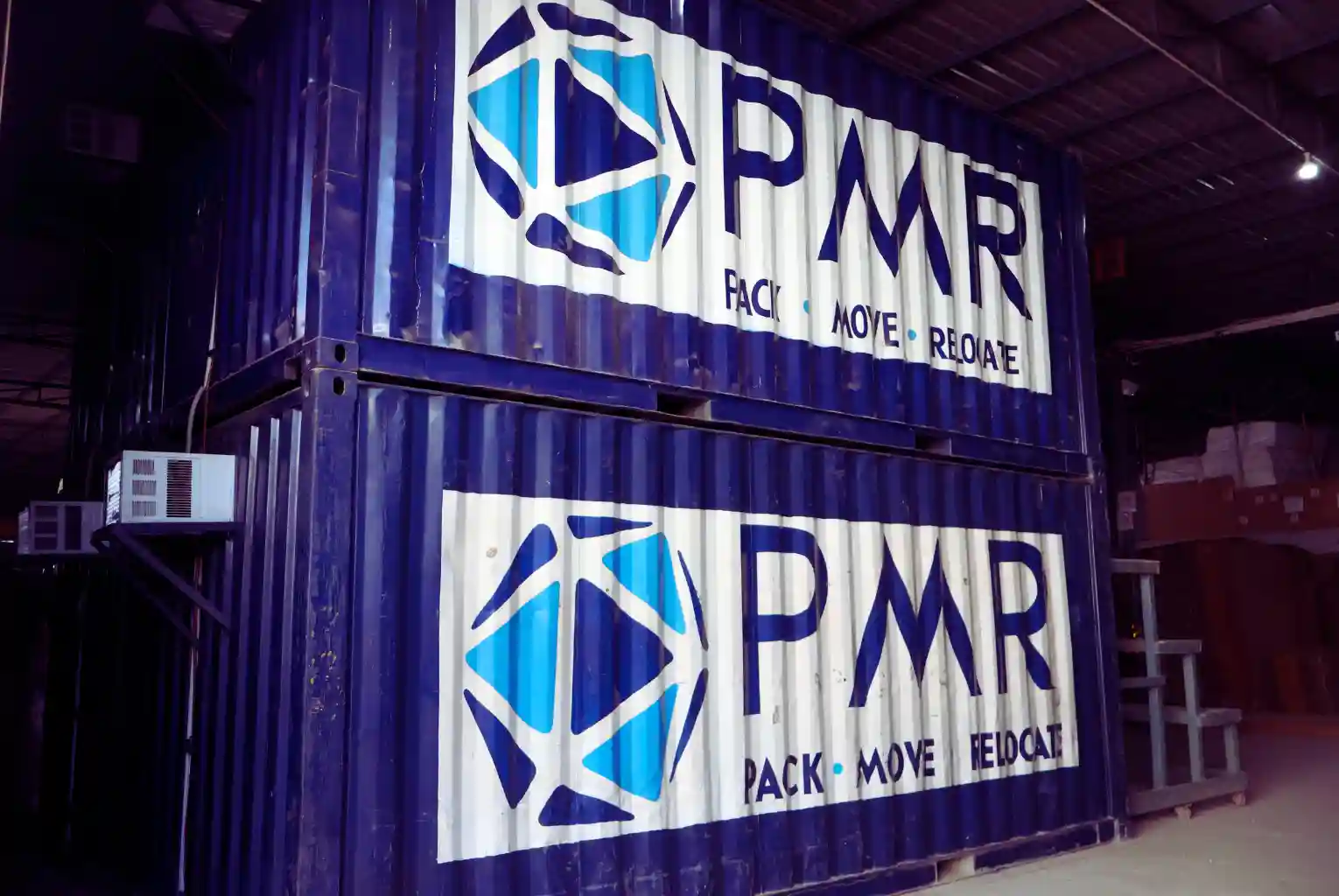HOW TO MANAGE WORK-LIFE BALANCE EFFECTIVELY DURING RELOCATION

Strategize Your Move
Another good method is to break work into tiny steps. Keep your to-do list prioritized as work tasks and moving tasks to avoid getting overwhelmed. Digital tools like planners or apps can ease the process, keeping you productive at work and organizing the move. In addition, it is advisable to notify your clients, colleagues, and staff about any disruptions that may take place and schedule key meetings or transfers in advance.
Manage Stress Using Self-Care Methods
The other essential factor is enough rest. Creating boundaries and ensuring rest guarantees you stay productive and focused throughout the transition. Also, adopt stress-relieving mechanisms like deep breathing exercises and soothing music to manage stress.
Leverage Remote Work Flexibility
Informing your employer about your temporary working arrangement ensures clarity and allows you to adjust your workflow accordingly. Having a designated workspace even during the moving process can help maintain productivity and minimize distractions. Make sure to have a backup plan, such as working from a café or co-working space if your new home is not yet set up.
In addition, it is essential to maintain regular interaction with your employer and colleagues at this stage. Marking your availability, attending virtual meetings, and being proactive in the work delivery will reaffirm your commitment despite the transition.
Avoid Moving Burnout by Seeking Support
Another way of making the transition easier is by informing managers and colleagues. Keeping them updated about your availability and workload ensures a smooth process of work and saves unnecessary pressure on you. Family and friends can also be sources of emotional support, as you should discuss your circumstances with them or a professional if you are stressed. Early detection of burnout signs and responding to them quickly can prevent long-term fatigue.
Settling into Your New Routine First
In addition, socializing with locals and fraternizing with your colleagues in your industry would create a support system and ease the settling process. Entering the transition phase with optimism implies allowing you to transition into your new life without affecting your career progress. Take time to familiarize yourself with transportation options, cultural differences, and social circles, as these factors significantly impact your daily routine and overall comfort in the new location.
Maintain Work Efficiency Amidst Relocation Challenges
Moreover, keeping a structured daily schedule during the first few weeks in your new home can enhance relocation productivity. Allocate specific time for unpacking, settling your new home, and meeting work commitments. Handle urgent work issues while gradually getting accustomed to your new home.
Networking with experts in your geographic location can also provide you with a sense of belonging and career security. Make contact with local meetups or professional organizations to network with key industry players.
Final Thoughts
Our Blogs

WHY SUCCESSFUL RELOCATION DEPENDS MORE ON RELOCATION PLANNING THAN DISTANCE
Successful relocation is rarely defined by distance—it’s driven by effective planning. From choosing the right storage solutions to coordinating warehouse timelines, smart relocation planning helps protect your belongings, reduce delays, and ensure a seamless transition. Whether it’s short-term storage or long-term warehousing, organized logistics play a critical role in making any move successful.

WHY YOUR BELONGINGS DESERVE A PAUSE: RETHINKING STORAGE AND WAREHOUSING SERVICES DURING RELOCATION
Relocation is not always a seamless door-to-door journey. Delayed handovers, international transit schedules, temporary housing, or sudden changes in plans often create a gap between moving out and moving in. During this uncertain phase, professional storage and warehousing services provide a safe, controlled environment for your belongings. From short-term holding to long-term storage, these solutions ensure your household goods remain protected, organized, and ready for the next step of your relocation—without adding stress to an already complex move.

WHY INTERNATIONAL RELOCATION TIMELINES OFTEN SLIP — AND WHAT YOU CAN DO TO STAY ON TRACK
International relocation timelines often look straightforward on paper—but reality tells a different story. Visa approvals, customs regulations, documentation gaps, port congestion, and coordination between multiple service providers can easily cause unexpected delays. Even small oversights early in the planning stage can snowball into weeks of disruption. This blog breaks down the real reasons why international relocation timelines slip and, more importantly, outlines practical steps you can take to anticipate risks, plan smarter, and keep your global move moving forward without unnecessary stress.



